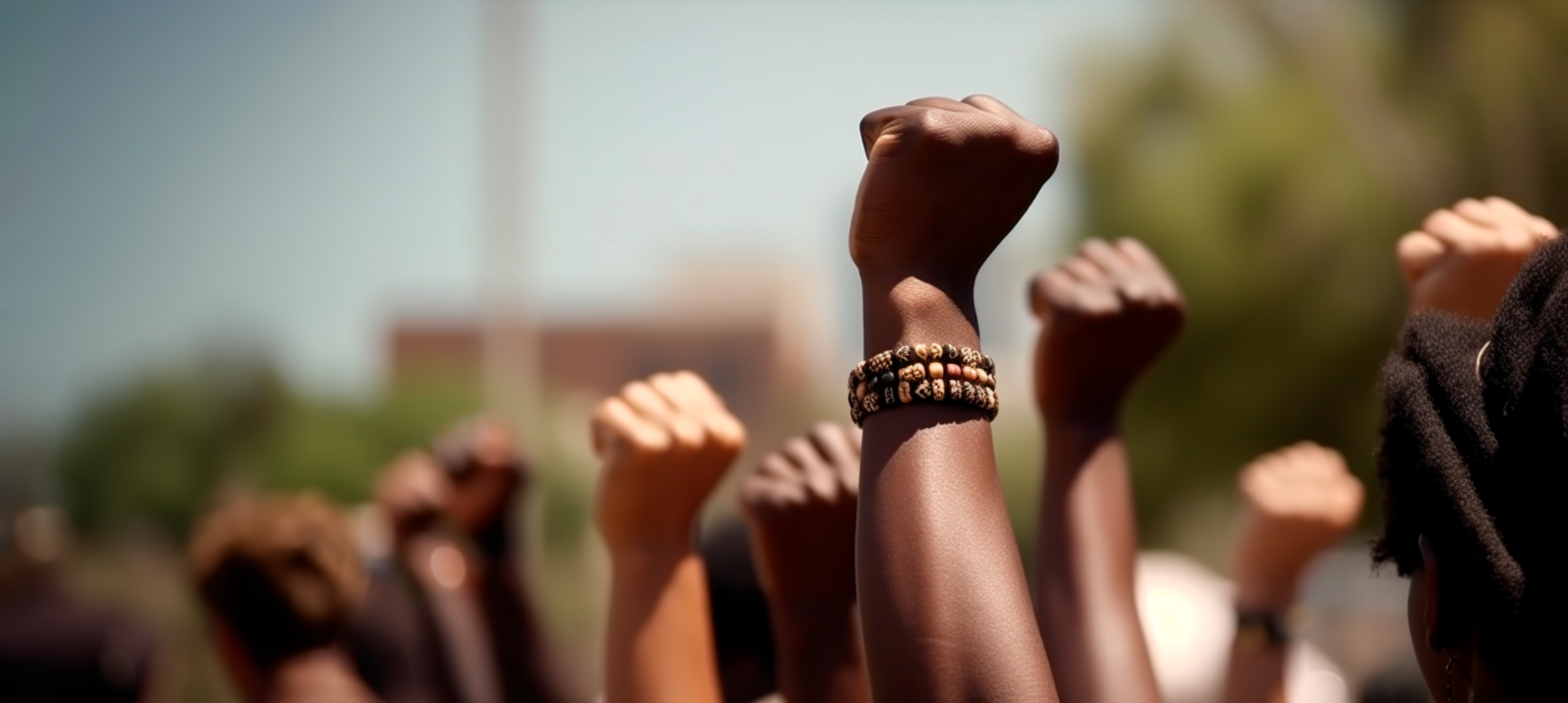The incoming government, no matter who it is, must prioritise and uphold human rights, ensuring a brighter future for the country’s youth, Amnesty International South Africa said ahead of Youth Day on Sunday.
“Youth Day is a significant occasion marking the day when brave young South Africans stood against the injustices of apartheid. This day serves as a powerful reminder of the importance of safeguarding the rights and freedoms of the youth who are the cornerstone of our nation’s future,” Amnesty International South Africa Executive Director Shenilla Mohamed said.
“Thirty years after gaining independence, young people continue to confront significant challenges such as high unemployment, sexual violence, and inadequate access to quality basic education, among others. Since the youth represent the future of our nation, it is imperative to address these issues with dedicated focus.”
In the run up to elections, Amnesty International South Africa put together its Human Rights Manifesto focusing on 10 issues crucial for political parties and candidates to commit to, to ensure that the rights of all those who live in South Africa are upheld.
“Elections may be over, but the commitment to a better life for all and the realisation of human rights in South Africa must remain steadfast. As coalition negotiations conclude and Parliament holds its first session on Friday, we urge all political parties in Parliament to prioritise human rights in the new administration and fulfil their promises,” Shenilla Mohamed said.
Amnesty International South Africa calls on the incoming government, regardless of political affiliation, to take immediate and decisive action to address critical issues affecting young people across the country. These include:
Quality Basic Education
Ensuring that all children have access to quality basic education. While progress has been made regarding access to education since the end of apartheid, significant challenges remain.
The 2023 report from the 2030 Reading Panel found that 82% of Grade 4 learners are unable to read for meaning in any of the official languages. The Department of Basic Education’s 2023 Education Facilities Management report indicates that 3,932 schools still used pit toilets. While progress is being made, it is too slow, and goalposts are continuously being shifted. The government must invest in infrastructure and resources to provide a safe learning environment.
Youth Unemployment
Government must also focus on providing quality education in a safe environment, as one way to help to decrease youth unemployment in South Africa. This is not possible if the country’s education system is still broken and unequal. The dire state of education in South Africa has an impact on, and is one contributing factor to, youth unemployment in this country.
Quality education is one of the most powerful ways to give our children a bright future. If the government wants the youth to participate in the economy, it needs to ensure that every child, no matter their background, is given access to quality basic education.
Water
Access to safe, sufficient, and reliable water is a right not a privilege.
This right will continue to be threatened unless the government prioritises investment in and maintenance of infrastructure, implements climate friendly policies, and tackles corruption and the mismanagement of public funds.
Over 3 million people do not have access to basic water supply service in South Africa and 5.3 million households (35%) do not have access to safe and reliable drinking water. The right to water is threatened by mismanagement, incompetence, and corruption; high and increasing debt in the sector as a result of failure to pay for services; vandalism and sabotage of water infrastructure; and climate variability and change.
Climate Action
The youth of today will inherit the consequences of climate change. Climate change is a threat to a wide range of human rights and will impact on the right to life, health, housing, water, and sanitation. It exacerbates inequalities, and its effects are disproportionately felt by those who are more vulnerable, marginalised and/or subject to discrimination.
It is imperative that the government commits to sustainable environmental practices and policies that mitigate the impact of climate change.
Safety and Security
Young people must feel safe in their communities. The government needs to strengthen efforts to combat violence, particularly gender-based violence, and ensure that justice is served for victims.
We continue to see failures by the SA Police Service (SAPS) in ensuring quality investigations. The highest rate of attrition (the cases that fail to reach or progress through to the next step) within the criminal justice system occurs at the SAPS stage.
South Africa has some of the most progressive legislation in the world when it comes to GBV, yet, our problem lies in the implementation of these laws and the lack of political will to ensure these are implemented and those responsible for their implementation and enforcement are held accountable.
“Upholding human rights is not just a legal obligation but a moral duty. We stand at a crucial juncture where the decisions made today will shape the future of our youth and our country. It is imperative that the incoming government champions the rights of young people and creates an environment where they can thrive,” said Shenilla Mohamed.
“As we honour the courage of the youth of 1976, let us also commit to building a South Africa where the rights and aspirations of today’s youth are fully realised.”
Background
Youth Day in South Africa is celebrated on 16 June, to commemorate the historic 1976 Soweto uprising, which saw thousands of black students take to the streets in protest against the apartheid government’s Bantu education system with many of them being killed and injured by the regime.
For more information or to request an interview, please contact:
Genevieve Quintal, Media and Communications Officer, Amnesty International South Africa: +27 (0) 64 890 9224; genevieve.quintal@amnesty.org.za


